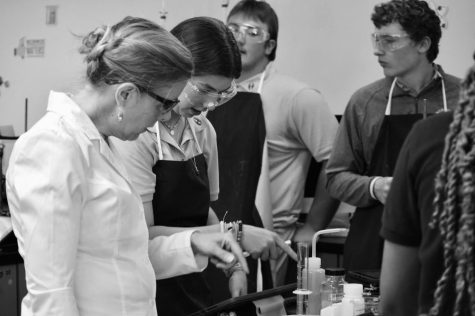DACA Issue Resurfaces Following Peaceful Demonstration
In 2012, an American immigration policy was established under the Obama administration in which individuals who entered the country as minors were afforded a renewable two-year period of deferred action from deportation and work permit eligibility. Referred to as DACA, The Deferred Action for Childhood Arrivals program consisted of about 788,000 immigrants under the age of 31, according to the U.S. Citizenship and Immigration Services. This program allowed thousands of children to better their lives through education, while simultaneously affording them opportunities that wouldn’t be even remotely plausible in their own country. The policy was a successful exception to an otherwise fractured system, providing the smallest amount of relief and comfort to struggling immigrants. In 2017, Trump decided to end the program.
The main problem with Trump’s theoretical deportation of all DACA members lies in the fact that most of these young immigrants, known as “Dreamers,” have never lived outside of the U.S. independently. For the past five years, these Dreamers, named after the Development, Relief and Education for Alien Minors Act (DREAM), have built steady lives for themselves in a country they felt they belonged in. They–along with their homes, their families, their friends, their entire lives essentially–are all firmly planted in American soil. How can we, in good conscience, ask these Dreamers to completely uproot themselves and their lives and move to a country they might’ve never been to? Trump’s decision leaves these people feeling homeless, unwanted, scared and threatened. These immigrants are children. They are kids. They are the most vulnerable members of society. They are completely unprotected aside from the DACA program.
Next, to further prove the severe injustice in ending this five-year policy, Trump’s other fatal flaw is that he seemed to ignore exactly how substantially the DACA program benefits the American economy. The majority of DACA recipients, upon earning work permit eligibility, become employed. The employers who have hired the recipients would not only face billions in labor turnover costs but, more significantly, the loss of valuable employees. Dreamers are too large a segment of the American workforce to just eradicate following the possible repeal of DACA. Dreamers undoubtedly boost the overall size of the American economy. Deporting the 790,000 current DACA recipients by 2020 would reduce the labor force by about 740,000 workers and cut aggregate GDP by $72 billion, according to a study by the pro-amnesty American Action Forum (AAF).
Although the policy was first threatened back in September, the effects of Trump’s decision are still impacting thousands of lives and it seems the majority of America hasn’t even noticed. This past Thanksgiving, members from the Seed Project, a peaceful organization that aims to serve as a voice for undocumented immigrant youth and bring them permanent protection from removal, attempted to blockade the annual Macy’s Thanksgiving Day Parade. This demonstration was mainly to bring awareness back to the controversial issue while also urging lawmakers to pass legislation that would prevent the deportation of DACA members. A member of the organization issued a statement following the demonstration:
“We know that Thanksgiving is a day that folks come together to celebrate with their families, and folks in our community are living in fear every day and folks who are dealing with a DACA repeal have a lot of uncertainty in their lives,” said Roberto Juarez of the Seed Project. “We call on the American public on the day that they are together with their family to join us and fight, so that other families can remain together.”
The repealment of the DACA program strips immigrant youth of the fundamental right to better their lives through education and opportunity. It is a blatant attack by Trump on vulnerable children who are attempting to become valuable members of society. Isn’t America supposed to promote freedom? Aren’t we supposed to recognize the value of hard work? Lately, it seems there are people in America who work just as hard as us, if not harder, yet receive no freedom. Now, what does that say about us?









